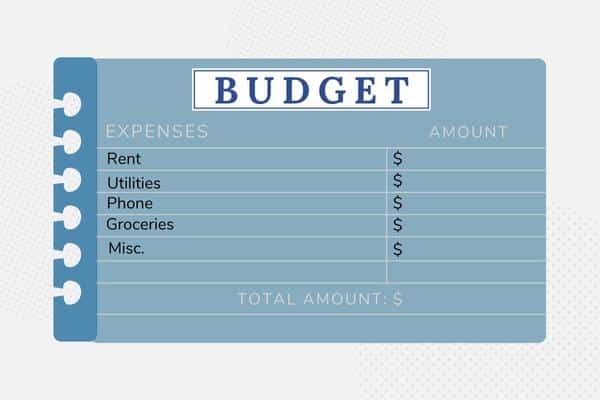Money management can be overwhelming. It’s a top source of stress for individuals and relationships. Taking control of your finances can be rewarding and impactful. It takes a bit of time, but just like most things in life, once you get in a groove it becomes second nature. Here are key tips toward taking control of your finances, thereby taking control of your future.
Set Goals
The first step in taking charge of your finances is setting goals. Knowing what you’re working toward is important to set a path of how to get there. Your goals might be short-term in nature such as an upcoming large expense, or longer-term retirement planning.
Developing a financial plan that includes short-term and long-term projections can help you to frame and understand the level of savings you need. Creating such projections with an advisor is strongly recommended.
Have Discussions with Your Partner or Spouse
If you’re in a relationship where your finances are currently or will be intertwined, discussions about money are essential relative to achieving your goals and maintaining a healthy relationship. Setting and agreeing on common goals helps to reduce stress, create unity, and determine how you will mutually work together toward your goals.
These discussions should be revisited on a frequent basis throughout the year to evaluate progress and discuss any changes that might impact your goals.
Avoid Debt
Other than a mortgage, student loans, or car payment, debt balances should be low enough to pay off every month. If not, the interest rates on credit card debt or other loans, which are often in the teens or above twenty percent, make it difficult to conquer debt repayment.
If you have debt, explore debt consolidation options to lower the interest rate. Alternatively, it can be best to focus on paying down debt balances that carry the highest interest rates to reduce monthly interest accrual. The one exception might be if you have a relatively small debt balance that could be paid off in a number of months. Sometimes it’s best to pay off a small balance so larger monthly payments can be allocated to larger balance debts.
Establish Timeframes
Setting time requirements or expectations for saving or paying off debt helps to stay on track. Consider the financial requirements for your goals and set a realistic timeframe along with specific numbers. Also, don’t forget that goals can be competing. For example, you might be saving for a vacation as well as your long-term retirement. One should not derail the other.
Embrace Technology
There are a number of technology platforms available to help you keep a pulse on spending and budget maintenance. These might be offered by your bank, or as a private service such as Mint. Taking a few minutes to connect your bank account and credit card information can offer insightful real-time information at the touch of a finger on your phone or computer.
Monitoring your income relative to spending is important. It helps to make sure that you’re within budget, not getting into debt, and if you’re capturing targeted savings.
Automate
Setting goals for saving and automating them is the best way toward success. This removes mindful actions on a weekly or monthly basis. Contributing to your employer retirement plan is step one. Capturing outside savings is step two. Having savings outside of your retirement plan is critical for a number of reasons.
Emergency Savings: It’s often recommended to build emergency savings of four to six months of your cashflow needs. This helps during any periods of unemployment or if large surprise expenses arise, such as an unanticipated home repair or medical need.
Large Expense Preparation: It’s wise to set aside savings incrementally for large, anticipated expenses such as vacations, buying a car, or perhaps a down payment on a home. These can seldom be captured in one month of savings, so it’s best to create a diligent process.
Meeting Your Retirement Goals: Many individuals need to capture additional savings beyond maxing their retirement plans to meet their retirement objectives. This is particularly true for high income individuals who might have a higher standard of living that they hope to perpetuate long-term.
College Savings: If you have children, saving for college might be important to your family. The cost of college is extremely expensive, even if your child attends an in-state public school. Costs often equate to buying an economy to a luxury car each year that your child is in school. Unless your annual income is sufficient to absorb these costs, savings over time are required.
Section 529 plans are often the best resource for capturing college savings, sometimes offering state income tax deductions depending upon the state you live in.
Utilize a Credit Tracking Service
Too often people fail to realize the ramifications that their financial decisions have on their credit score. This can be a surprise when you try to finance a car or a house and discover that your credit score impacts your ability to purchase and the interest rate you must pay.
Utilizing a credit tracking service can help you monitor your credit score and keep you apprised if your level of debt and timeliness of payments are impacting your rating negatively. These services also help to protect against malicious activity such as identity theft.
Know Yourself
Finally, it’s important to consider your financial strengths and weaknesses so that you can leverage your strengths and set goals on how to improve your weaknesses. Setting reminders and check-in points with yourself to monitor progress and evaluate the methods you’re using in your finances can be very effective.
SageVest works with clients to identify financial goals, establish recommendations, and create actionable steps toward financial achievements. All of these are reviewed on an ongoing basis to help you reach your goals and enjoy successes along the way. Taking charge of your finances is liberating. It results in creating financial security, reducing stress, and achieving peace of mind. Please contact us to discuss how to take charge of your finances today.




